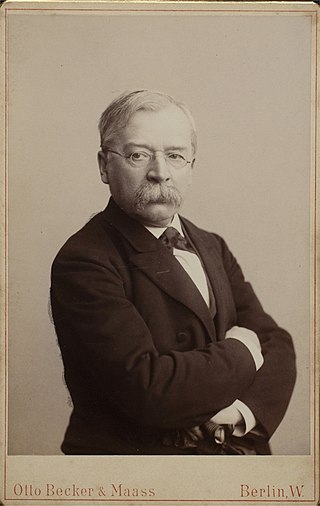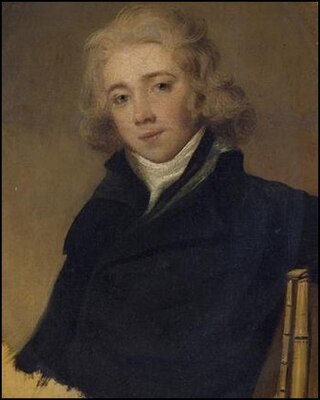
Woldemar Bargiel was a German composer and conductor of the Romantic period.
Dmitri Shostakovich's String Quartet No. 1 in C major, Op. 49, was composed in six weeks during the summer of 1938. He began to work on the quartet on the morning of May 10, 1938. It carries no dedication. Shostakovich said that in this quartet he had "visualized childhood scenes, somewhat naïve and bright moods associated with spring."
Dmitri Shostakovich's String Quartet No. 3 in F major, Op. 73, was composed in 1946. He wrote most of it between May and August of 1946 while visiting his summer home in Kellomäki. The Quartet was premiered in Moscow by the Beethoven Quartet, to whom it is dedicated, in December 1946.
Dmitri Shostakovich's String Quartet No. 5 in B-flat major, Op. 92, was composed in autumn 1952. It was premiered in Leningrad in November 1953 by the Beethoven Quartet, to whom it is dedicated.
Dmitri Shostakovich's String Quartet No. 6 in G major, Op. 101, was composed in the summer of 1956. It was premiered by the Beethoven Quartet in October 1956. It carries no dedication. The Beethoven Quartet recorded this work on the Mezhdunarodnaya Kniga label.
Dmitri Shostakovich's String Quartet No. 9 in E-flat major, Op. 117, was composed in 1964 and premiered by the Beethoven Quartet. The Ninth Quartet was dedicated to his third wife, Irina Antonovna Shostakovich, a young editor he married in 1962.
Dmitri Shostakovich's String Quartet No. 11 in F minor, Op. 122 was finished on January 30, 1966, in Moscow. It was premiered by the Beethoven Quartet and is the first in a series of four quartets to be dedicated to members of the Quartet. Vasily Shirinsky was the dedicatee of the Eleventh, the quartet's second violinist, who died on August 16 of the previous year.
Dmitri Shostakovich's String Quartet No. 12 in D-flat major, Op. 133, was composed in 1968. It is dedicated to Dmitri Tsyganov, the first violinist of the Beethoven Quartet, which premiered the work in Moscow on June 14.
Dmitri Shostakovich's String Quartet No. 13 in B-flat minor, Op. 138, was first conceived in 1969, and completed in 1970 as Shostakovich was undergoing treatment at the Russian Ilizarov Scientific Center for Restorative Traumatology and Orthopaedics in Kurgan.

Hyacinthe Jadin was a French composer who came from a musical family. His uncle Georges Jadin was a composer in Versailles and Paris, along with his father Jean Jadin, who had played bassoon for the French Royal Orchestra. He was one of five musical brothers, the best known of whom was Louis-Emmanuel Jadin.
Antonín Dvořák wrote his String Quartet No. 5 in F minor, Op. 9 (B. 37), in September 1873, the composition was finished on 4 October 1873.
Anna Karenina is a ballet choreographed by Boris Eifman, based on the 1877 novel Anna Karenina by Leo Tolstoy. The première took place in Saint Petersburg on Saturday, 2 April 2005. The music is by Pyotr Ilyich Tchaikovsky and includes excerpts from:

August Winding was a Danish pianist, teacher and composer.
Joseph Haydn's String Quartets, Op. 64, is a set of six string quartets composed in 1790. Along with six earlier quartets published under the opus numbers 54 and 55, they are known as the Tost quartets, after the Hungarian violinist and later merchant Johann Tost who helped Haydn find a publisher for the works. Unlike the earlier quartets, Haydn actually dedicated the Op. 64 set to Tost in gratitude for his efforts.

The Hungarian composer György Ligeti published three string quartets: two string quartets proper and a student piece from 1950 published toward the end of his life. The first two quartets represent his early period, inspired by Béla Bartók, and middle period, which was largely micropolyphonic.

The Piano Quartets, WoO 36, by Ludwig van Beethoven are a set of three piano quartets, completed in 1785 when the composer was aged 14. They are scored for piano, violin, viola and cello. He composed a quartet in C major, another in E-flat major, and a third in D major. They were first published posthumously in 1828, however numbered in a different order: Piano Quartet No. 1 in E-flat major, Piano Quartet No. 2 in D major, and Piano Quartet No. 3 in C major.




